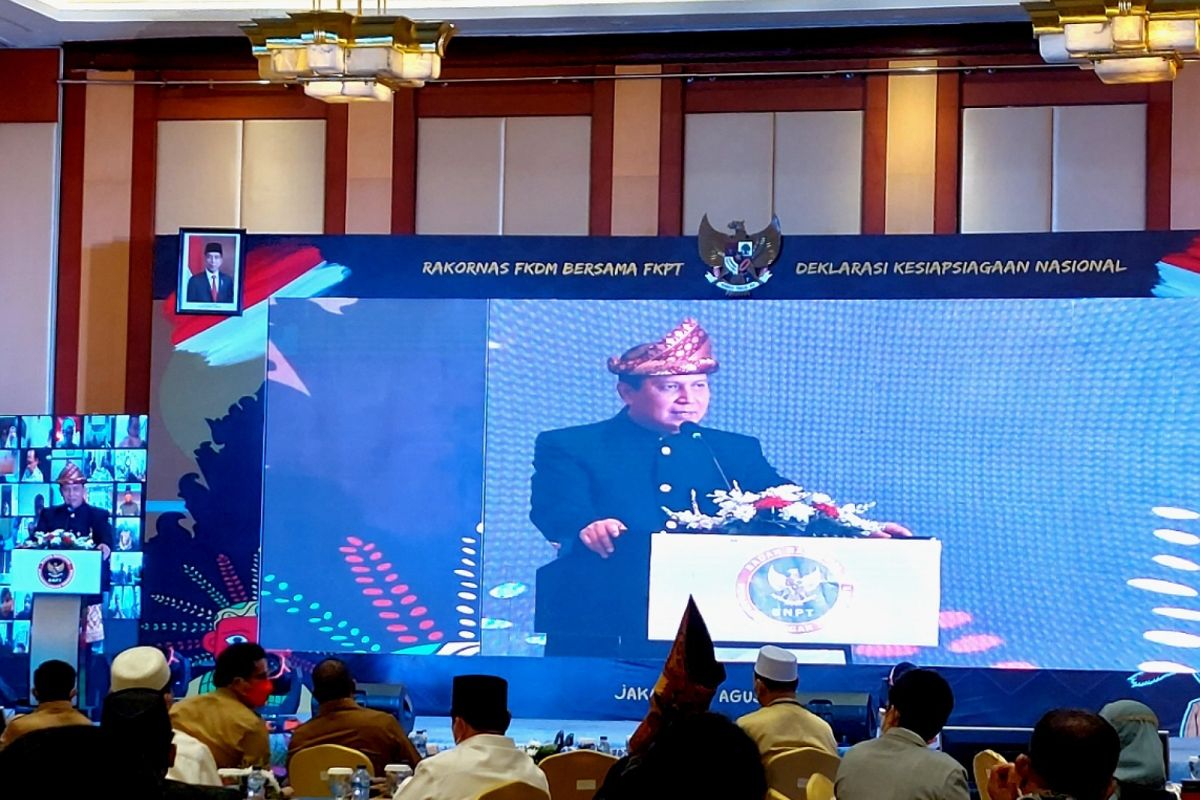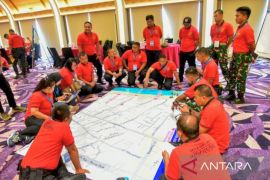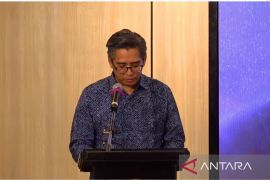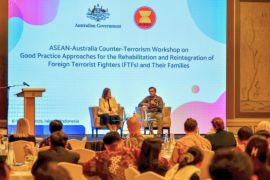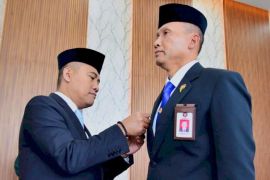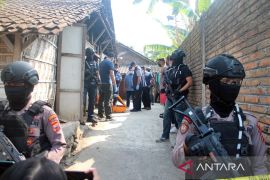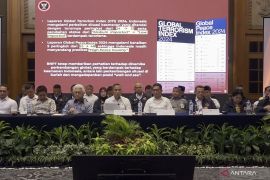This phenomenon was used by terrorist groups for their interests, such as by baiting others into agreeing with them through radicalism parading as religious notions and getting new members through online oath-taking. Their intellectual actors comprehended that intolerance and radicalism gave way to terrorism.
Notice the difference between Al-Qaeda -- built by wealthy Saudi Arabian man, Osama bin Laden, in the 80s -- and ISIS -- Iraq and Syria Islamic State founded by Abu Bakar al-Baghdadi in Mosul, Iraq, in 2014 -- in terms of their methods in spreading their radicalistic and terroristic concepts.
Al-Qaeda grew in a rather conventional, limited fashion, as it got members via face-to-face recruitment. However, ISIS was wildly different. Its spread was massive, and many were within its grasp. Its reach transcended countries, gender, and age, particularly millennials and gen Zs. The point to be noted was that the movement emerged along with the development of digital information and growth in the number of social media users.
Often we read or see news about a teenager from a country, painstakingly flying to Iraq or Syria to join ISIS. They discovered the terrorist organization from social media platforms.
ISIS members refused to be labeled as terrorists and instead wanted to be called as "mujahiddins." They used religious terms to mask their radical intentions. These people were found to be from countries in Asia, Europe, Americas, and even from Indonesia, in which many individuals of the productive age group were often found.
Two cases emerging as of late showed that millennials and gen Zs were becoming targets as of late.
Millennial, or generation Y, are a group of people born in the 1980s to 2000s. After millennials were those born in the period from 1995 to 2010, known as Gen Z. They were called as the i-Generation, or internet generation.
Bombing in the Makassar Cathedral on Sunday, March 28, 2021, was conducted by Lukman and Dewi, a couple born in 1995, or in other words, the gen Zs.
Another shocking case arose in 2021 when a woman, named Zakiah Aini, was assumed to have been brainwashed through virtual means, leading her to become a lone wolf and attack the National Police Headquarters on Wednesday, March 30. She was born in 1995 and also a member of gen Z.
Their pathway to terrorism was different. Lukman and Dewi were affiliated with Jamaah Ansharut Daulah (JAD), centered in the Philippines. Ainini, on the other hand, was suspected to be part of ISIS.
The tales of challenges were recounted by Head of the National Counter Terrorism Agency, Commissioner General Boy Rafli Amar in Jakarta, August 2, 2022, prior to the National Declaration of Readiness.
He noted that those ideologies, which promoted violence and antihuman values, were akin to a virus, as it spread rampantly.
In facing those challenges, the agency has made continued, incessant efforts, including collaborating with its stakeholders, such as religious organizations, religious figures, and universities.
The battle against the virus was everyone's fight, and it was not just the job of the agency or the Couterterrorism Special Detachment 88. Hence, collaboration was a strategic measure.
This time, the agency conducted collaboration with the Home Affairs Ministry, represented by Deputy Minister of Home Affairs, John Wempi Wetimpo. They also hosted a meeting between counterterrorism coordination forum -- managed by the National Counter Terrorism Agency -- and the public early warning forum -- coordinated by the Home Affairs Ministry.
Officials of the National and Political Unity Office from 34 provinces were also present at the event.
There was also a national dialogue involving several speakers, including Father Antonius, Special Staff to the Chairman of the Steering Committee of the Pancasila Ideology Development Agency, Head of Antiterrorism Special Detachment 88 at the National Police Inspector General of Police Marthinus Hukom, and Director of Prevention at the National Counter Terrorism Agency Brigadier General Police R. Ahmad Nurwakhid.
Improving national consensus
National Preparedness was mandated by Law Number 5 of 2018 on amendments to Law Number 15 of 2003 about stipulation of Government Regulations in Lieu of Law Number 1 of 2002 about Ratification of Eradication of Criminal Acts of Terrorism.
National preparedness, as one of the strategies to prevent terrorism, was conducted by encouraging groups and community organizations to actively contribute to terrorism prevention. It was also a precautionary measure to cut down the risk of radicalism and terrorism, especially with regard to young people.
The question is: why are millennials and Gen Z being targeted by terrorists into joining their groups?
Amar drew attention to two factors, with the first being their age, especially members of the Gen Z. They were in that age group in which they were unstable, as they were in the process of finding their identity, so they were easy to indoctrinate.
The second factor was the immense global influence in the era of advancements in digital technology in addition to the extensive use of social media currently.
Indonesia is estimated to have 202 million internet users of its total population of 270 million, and 80 percent of them have various social media accounts. Of all the social media users, 60 percent were young people, or millennials and Gen Z.
In the wake of exposure to the endless stream of information from social media, one must counter it by improving literacy as well as by increasing public awareness and involvement in developing national resilience that comprised various aspects, such as ideology, politics, economy, socio-culture, defense, and security.
Intolerance, radicalism, and terrorism were transnational threats in the form of ideologies, crimes against the state constitution, and Pancasila, as the state ideology.
Indonesia had its own identity. However, challenges continue to arise because of global relations that are replete with various international, national, and domestic interests.
Indonesian values had proven to be strong though sometimes forgotten. There are over 1,300 tribes, 600 mother tongues spoken, legalized religions, and sects, all of which could be found from Sabang to Marauke, as a form of wealth born from Pancasila.
However, the rapid influence of globalization had caused some of the citizens to abandon the nation's noble ideology of Pancasila that promoted peace.
He said that the COVID-19 pandemic was handled through efficient, wide usage of vaccines. In a similar manner, the virus of intolerance, radicalism, and terrorism must also be countered through its own vaccine, which is through improving the national consensus on the four National Pillars: Pancasila, the 1945 Constitution, the Republic of Indonesia, and Bhinneka Tunggal Ika.
Changing the paradigm
According to Hukom, there were several important points regarding a paradigm shift in handling terrorists and ex-terrorism convicts.
These measures included proposing that ex-terrorism convicts be invited to attend the Independence Day celebrations on August 17, 2022. This aimed to treat ex-terrorism convicts in a more humane manner as well as instill a sense of nationalism in them.
Another effort to change that paradigm included changing their perspective and beliefs that fell under the authority of the Special Detachment 88 in the arrest and detention process. Hence, it would not merely be about imprisoning them in flesh. The measure had become the basis for the formation of the "200 Day Islamic Boarding School" program.
In accordance with Law Number 5 of 2018, the Antiterrorism Special Detachment 88 was mandated to arrest and detain for 14 days and that period can be extended by seven days, and the investigation process was 200 days. Thus, the "200-day Islamic Boarding School" program was born to pursue religious moderation by changing their mindset.
Under the "200 Day Islamic Boarding School" program, they would be imparted new values to overwrite the violent doctrine they had received as terrorist members, Hukom stated.
Special Detachment 88 personnel were also ordered to treat former special prisoners and their families well. For instance, they were ordered to celebrate the release of ex-terrorism convicts with a party involving the head of the neighborhood and local community leaders, as it aimed to make them feel welcomed.
The detachment's measures were sometimes ridiculed and protested by some people despite meaning well. It was not only for humanity but also to maintain contact, so that officers could continue to communicate with them to prevent them from relapsing into their old ways.
Efforts to change the paradigm by the agency and the detachment had been quite successful in assisting ex-terrorism convicts and their families, both from the seeds of radicalism and from psychological trauma due to social punishment.
For instance, they succeeded in getting a child of a terrorist to be accepted in his community. The child was earlier always gloomy, ostracized, and did not want to socialize.
He said that the son of Syarial Alamsyah, alias Abu Rara, was believed to have stabbed General (Ret.) Wiranto, who was Coordinating Minister for Political, Legal, and Security Affairs at that time, in Pandeglang, Banten, on Thursday, October 10, 2019.
The paradigm shift had offered a new ray of hope for ex-terrorism convicts that they can be accepted again as children of the nation, although earlier they had lost their way based on an anti-humanistic perspective.
Nurwakhid said that as compared to other countries -- especially Iraq, Afghanistan, and Syria -- Indonesia could be considered quite successful in ensuring the state's safety against radicalism and terrorism.
A parallel could be drawn between Indonesia and angklung, the West Java instrument with varying sizes to its set. A symbol of the nation's diversity. Although the scales of each angklung instrument differed, they could produce beautiful notes once played together in harmony.
Related news: Indonesia ups the ante against OPM, affiliates with terror tag
Related news: Eight civilians killed by Papuan terrorists flown to hometowns
Related news: Armed Papuan separatist terrorists again assault workers in Papua
Editor: Rahmad Nasution
Copyright © ANTARA 2022
